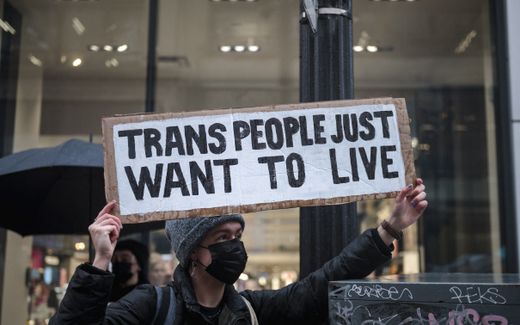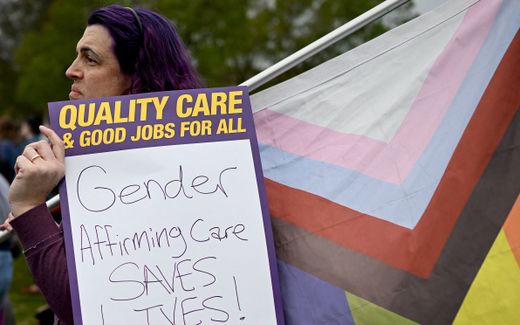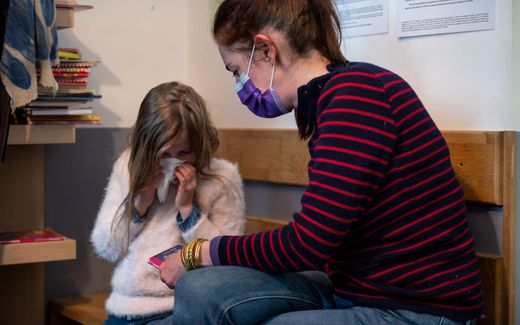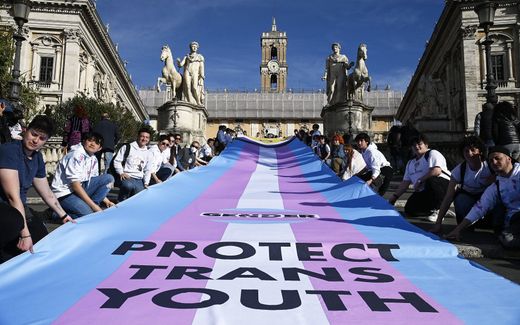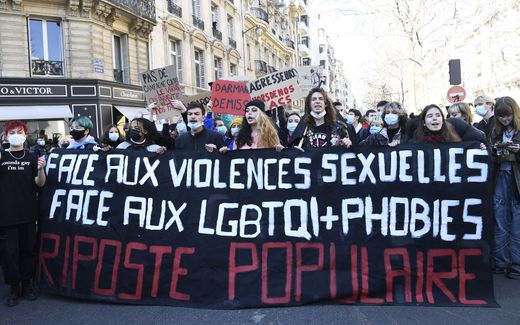Dutch debate about broadcast shows sensitivity of the trans issue

Statistics on a computer screen. Photo Unsplash, Chris Liverani
Western Europe
Dutch methodologists criticise the transgender policy in the country. However, only one dares to show his name in a broadcast on the topic.
Another one had already promised an interview with the Dutch broadcaster BNNVARA on the issue, but the hospital he works at told him not to do so. It shows the sensitivity that surrounds the issue of transgenderism and its treatments.
According to the four "prominent methodologists", the scientific basis of the Dutch treatments of transgenders, known as the Dutch Protocol, is unsound. And that is quite problematic, as many Western countries have taken the Netherlands as an example for their own treatment methods of transgenderism.
The Dutch Protocol advises the administration of puberty blockers to young people with gender dysphoria at the start of their puberty. This hormonal treatment stops the development of adolescents "in their undesirable gender", which leads to a "better well-being", BNNVARA writes.
However, the Dutch methodologists argue in a broadcast called "Het Transgenderprotocol" that a scientific foundation of this treatment is lacking. The research that is used to defend the method was carried out between 2011 and 2014 by child psychiatrist Annelou de Vries. It is usually seen as "crucial proof of the effectivity of the Dutch treatment protocol."
Nevertheless, the four methodologists have two main points of critique:
The research from De Vries did not include a control group that was not treated with puberty blockers to see what the difference would be.
The subjects received both puberty blockers and psychological treatment at the same time. Thus, the research is unable to show which of the two treatments is most effective.
Gerard van Breukelen, a methodologist and statistical expert of the Maastricht University is the only scientist who dares to make his statements under his own name. The other three wished to remain anonymous because of the sensitivity that surrounds the topic. The methodologist from the Academic Hospital in Utrecht, who received negative advice about an interview he had already promised to BNNVARA, was told that "participation would be bad for his career." The hospital confirmed this to the broadcaster and explained that the subject was too sensitive.
Invasive
Their arguments are echoed by two other psychiatrists, one from Finland and one from Sweden. Riittakerttu Kaltiala is very clear: The research De Vries does not constitute proof for the effectiveness of the Dutch Protocol. Mikael Landén from Sweden questions why the standards for this group of patients are lower than for others. "That is unfair. This is all about a very invasive treatment with life-long consequences.
The broadcast in which the critique on the Dutch Protocol is presented leads to upheaval within the Dutch organisation Transgender Netwerk. The organisation which propagates transgender rights sent an "urgent letter" to the Dutch broadcaster BNNVARA.
The Transgender Netwerk argues that the arguments against the Dutch Protocol come from "extreme voices" that often do not have enough expertise in transgenderism and also regularly propagate controversial conversion therapies. Therefore, they urge the public broadcaster to "not become a negative impact in a culture war for the right to existence and the right to access to care for transgender adults and youngsters." Instead, the broadcaster should talk to experts in the field, the Netwerk argues. The organisation even threatened to file a complaint with the National Ombudsman if the broadcast gives cause for that.
Organisation
Transgender issues are a hot topic in the most of Western Europe at the moment. Most countries have made it easier to change gender at a young age or are in the process of legislating in that direction. In the meantime, the debate about the scientifical and medical foundation of this is growing. The TV program is part of that.
Last February, the Transgender Netwerk criticised the Dutch newspaper Volkskrant for a critical article on transgender care. The Netwerk points out in a letter that the article mentions critique from scientists worldwide, while only referring to "one specific organisation that has a political agenda against transgender care and no agenda for good care." In addition, the letter states that the article propagates that more and more people regret their gender change, while this "is not shown by research." According to Transgender Netwerk, readers are provided with incomplete and sometimes incorrect information."
The broadcast on the Dutch protocol will be presented on Thursday at 8.25 p.m. CET
Related Articles


